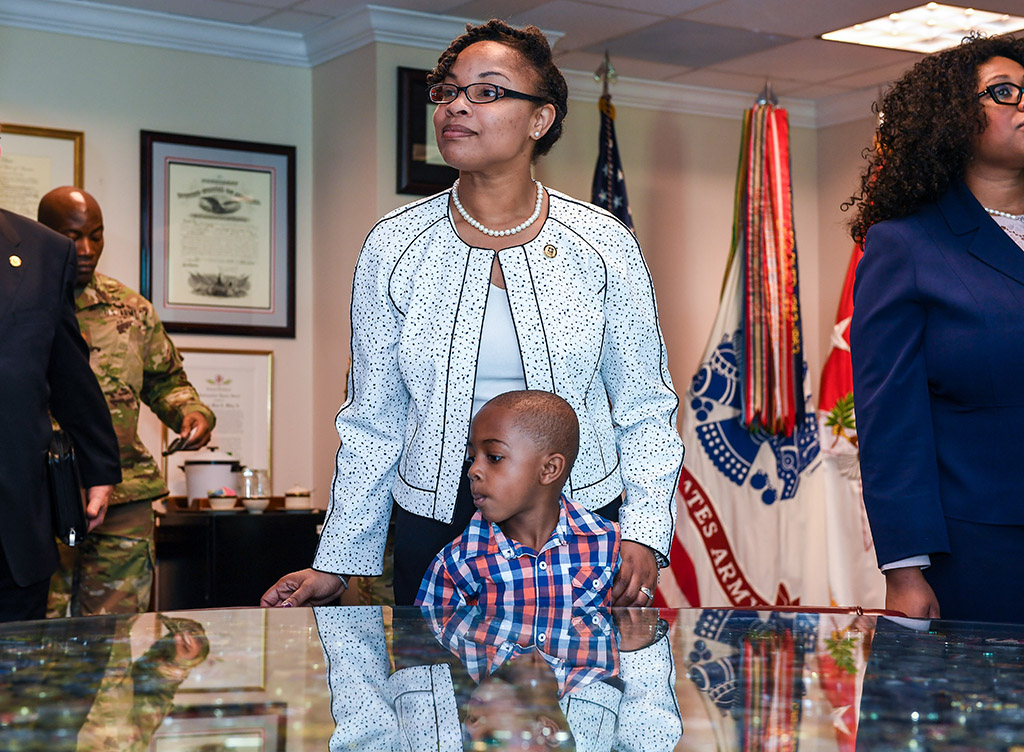Written by Kelisa Wing | Aug 10, 2018 4:00:00 AM
My son loved everything about school, until he didn’t. He was eager to learn, read, write and make friends. At 5, he had already had varied life experiences. He was born in Germany, had traveled to Spain, and moved to the South all before his first birthday. Last year, my son started kindergarten and it was the first time he was was in a space that lacked diversity. At bedtime, he would say to me, “I get treated differently.” Although he is an active child, his previous pre-school teachers understood the nuances that made him who he is and were culturally responsive to his needs. I was oblivious to the challenges that he would have to face as a diverse child. I thought I was ready for every adverse situation that could come his way, after all, we had gotten our daughter through elementary school without incident.
[pullquote]Many of our young learners are exposed to disparate disciplinary measures, and my son was no different.[/pullquote] At 5, when he squirmed on the carpet, he was moved away from the group, and was referred out of the classroom. He had situations where his recess privileges were revoked, and many of the offenses were for situations that were developmentally appropriate for a child his age, such as accidentally bumping into someone in line, not maintaining his personal space, or, the most upsetting of all, “using unkind words” for saying someone could not attend an event he was having. In addition to learning the curriculum, early childhood learners need to be taught how to behave in school. Many of them do not understand the social norms that come along with simply being a student. Educators must be patient and empathetic when teaching these young children, but oftentimes when it comes to children of color they are not. In 2014, although only 19 percent of preschoolers enrolled were African American, 47 percent of preschoolers who were
suspended or expelled were African-American.

I Was Not Going to Sit Back and Watch
As a strong advocate against the school-to-prison pipeline, I was not about to sit back and watch my own son fall victim into it. I did all I could to support my son and love him, but still I could see with every office visit, his confidence dwindling and a waning desire to be at school. The first meeting my husband and I had, it was recommended that my son should have a functional behavior assessment (FBA) conducted. We nearly lost it, but remained calm and asked why. The reasons given were for things that are described as wilful defiance, and acts that are developmentally appropriate for a child his age. This is something that happens often, as Black boys are overly identified for special education services when what they really need is culturally appropriate instruction and someone to believe in their abilities to perform at a higher level.
I Shouldn’t Have to Do This Work
Having conversations about microaggressions and holding up mirrors for others to truly see themselves is work that I do as a speaker, an advocate, and as a parent, but it is not easy and it should not be done in isolation when our previous administration has done this for us. Too many times, parents feel alone in this work. Navigating advocacy and doing what is best for all children is critical in order to give them the promise and the possibility of a bright future. Arne Duncan said [pullquote position="right"]the school-to-prison pipeline and discipline reform is the “civil rights issue of our time”[/pullquote] and now, the new administration wants to tear down these liberties that every child, everywhere, every day should have access to no matter what they look like. Who will stand up for my son and the other children of this world without the protections to ensure that underserved children are treated just and fair in systems that seek to tear them down and not build them up? Who will speak for Black and Latino children who are three times more likely than their White peers to be suspended for the same offense? Who will stand up for the disproportionate number of Black and Latino students in New York City who were arrested at school? Many of our children are not getting in trouble for violent crimes, but for willful defiance, such as chewing gum, drawing on a desk, talking back, or not taking off a hat. The story of my son is just beginning, and as we prepare for his first-grade year, I feel a knot in my stomach, and I would be lying to you if I did not tell you that I am worried about what he may face, especially if Secretary of Education Betsy DeVos moves forward with the plans to roll back the policies that kept children like mine safe. [pullquote]Too many of our parents feel powerless and ineffective in this fight, but I am here to tell you that you are not alone.[/pullquote] We trust the system to do right by our children, and when we send our babies to school, we are giving them our very best. We should never be afraid to speak up and speak out when it comes to our youth because silence equals complicity. It does not matter your socio-economic status, level of education, or zip code, all means all, and all children deserve to be treated equitably. Just because this is not happening to your children does not mean this is not your problem. I urge you to educate yourselves and encourage others to as well on school discipline policies, and I encourage you to seek restorative justice as opposed to exclusionary discipline practices. Children deserve it; my son needs it!
Photo courtesy of Kelisa Wing.